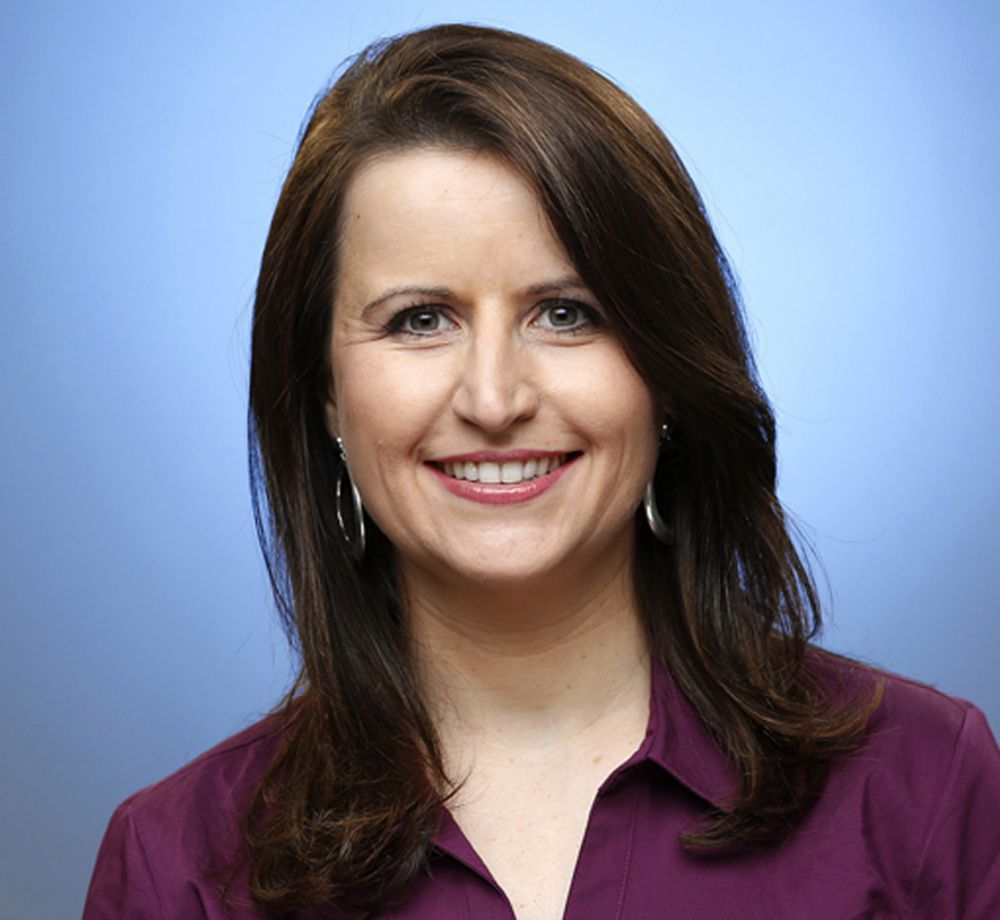
An Ink-Stained Opportunity
These are not easy times for traditional news media. After years of lost revenue and deep staff cuts, President Trump recently labeled them an “enemy of the American people.” How should journalists respond?
Work harder and get it right — because the country depends on it. “No matter how you feel politically, a strong, free press benefits everyone,” said Christina Bellantoni, assistant managing editor for politics at the Los Angeles Times.
That’s the message Bellantoni will deliver in a talk titled “Figuring Out What’s Real in an Era of Fake News: Why Journalism Matters Now More Than Ever” at Santa Barbara’s New Vic theater at 33 W. Victoria St. Sunday, March 12 at 3 p.m. The talk, which is free and open to the public, is sponsored by the Walter H. Capps Center for the Study of Ethics, Religion and Public Life at UC Santa Barbara.
A veteran reporter and editor who covered the White House for years, Bellantoni notes that while newsrooms across the country have struggled, the political climate in Washington has given journalists an opening to demonstrate the value of solid, objective reporting. “It’s an incredible opportunity,” she said. “Journalists can prove their worth now. Journalists can show the importance of investigations; journalists can show the importance of context; journalists can show importance of truth-telling.”
The press has its work cut out for it. Faith in the media has been falling for years, especially among conservatives. Recent polling found that more than 80 percent of Republicans believe Trump is telling the truth and the media are not.
“It’s been a slow erosion of trust over the years,” Bellantoni noted. Winning back that trust will require journalists taking seriously their responsibility for producing stories that are beyond reproach. “I tell my journalists all the time, ‘You have to check your facts three times. You have to record everything. You have to be certain.’ ”
Part of the challenge journalism faces in this atmosphere of mistrust, Bellantoni said, is avoiding the appearance of bias. She acknowledged that “most journalists are more liberal than they are conservative.” That doesn’t mean, however, that their coverage should betray their ideological leanings.
“The whole point is you should be able to understand the other side even if you don’t personally ascribe to it,” she said. “If you’re interviewing someone and you’ve never been through the Heartland or been at an evangelical church service you might not understand the right questions to ask to get at the truth. It’s a really challenging time, especially for young journalists, to make sure that they’re reflecting everyone in society and not just the people they’re exposed to.”
But that doesn’t mean the public is off the hook, Bellantoni said. A plague of propaganda and sensationalism has made it difficult at times to distinguish between genuine journalism and “fake news.” While journalists work to report the truth, the public has to be more discriminating in what it takes in.
“It’s about the opportunity journalists have, but it’s also the responsibility of consumers,” she explained. “I think now people are more aware than ever that they have to be vigilant on what sources they’re getting their information from. Don’t share something if you didn’t read it. I see that so often — people share something because of the headline, but never read the story.
“That’s a pet peeve of mine, but it’s also something that’s really common,” Bellantoni continued. “You just have to be more vigilant about understanding where your news is coming from. If it sounds outrageous, it might be outrageous and not actually true.”



